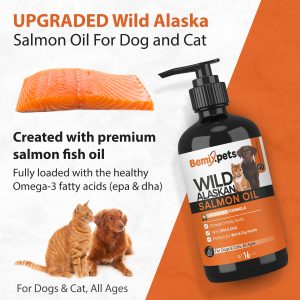Dogs are relative carnivores, which means that in addition to meat and animal products, their diet can also include plants. The question often arises - can a dog eat rice? Fruits, vegetables, and rice in a dog's diet are valuable meal components, allowing a complete diet to be arranged. Dogs can eat rice, but attention should be paid to the amount and proper processing.
Contents
Do you happen to give your dog rice left over from dinner? Have you ever wondered if rice is a suitable food for dogs? Often we don't pay much attention to it - it's left over after dinner, and it's a shame to throw it away. This is a basic mistake in thinking because giving your pet the leftovers of your dish can cause him health problems - digestive difficulties, abdominal pain, and even lead to poisoning. So do you know if your dog can eat rice?
Rice for dogs - what are the benefits of rice?
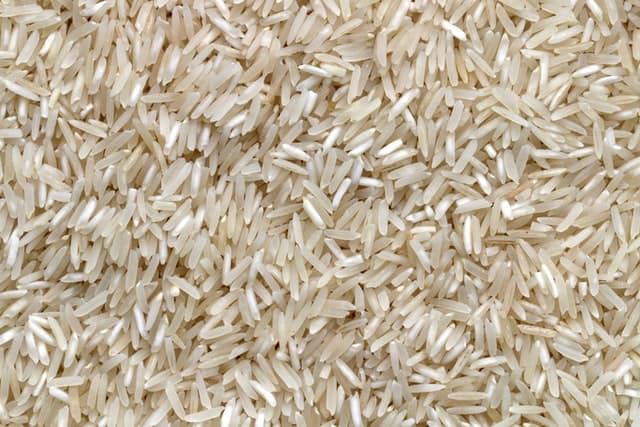
Rice is a type of grain combining about 25 of its species. Next to wheat, it is one of the most widely consumed cereals in the world. And for a good reason - it is a beneficial food component. In Poland, white rice is the most common. Its undoubted advantage is the content of numerous nutrients - rice contains iron and calcium, fibre and vitamin D, and beneficial riboflavin.
However, white rice is quite caloric - 100 g of this product provides about 130 kcal. It is an easy-to-prepare and versatile product - it goes well with most vegetables and meats and is cheap.
What is the importance of rice?
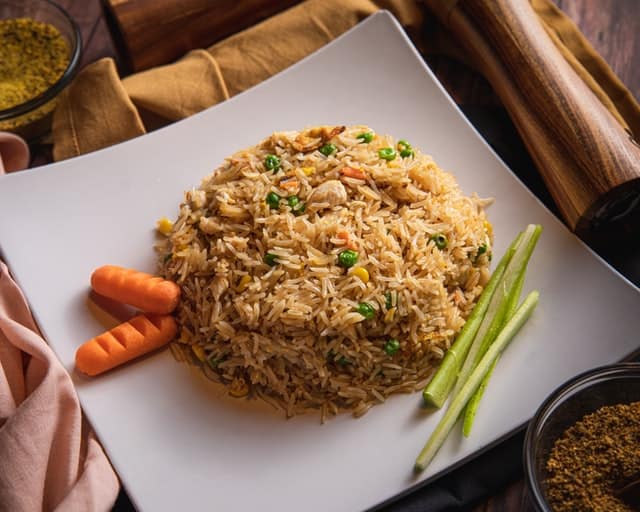
Vegetables and fruits, as well as cereals in the right amount, adapted to the dog's needs, make it possible to arrange a balanced menu. However, the prerequisite is perfect knowledge of the needs of our four-legged friend, which vary significantly due to, among other things, his breed and weight, as well as individual preferences.
Giving a dog rice is sometimes associated with a dilemma regarding the rightness of this ingredient in a carnivore's diet. However, it turns out that rice for dogs is a valuable part of the food, as it provides a large amount of, among other things, well-absorbed carbohydrates.
Carbohydrates have not always been important to a dog's diet. The ancestors of dogs could not digest carbohydrates, but carnivores adapted to metabolize plant substances through evolution and gradual domestication. Today, the dog's body can use carbohydrates as a source of easily digestible energy. Rice in the dog's diet is currently an important element that, among other things:
- provides the animal with carbohydrates as an additional source of energy;
- acts as a regulator of the digestive tract;
- Combined with vegetables and food of animal origin, it can form a complete food.
Benefits of feeding rice to dogs.
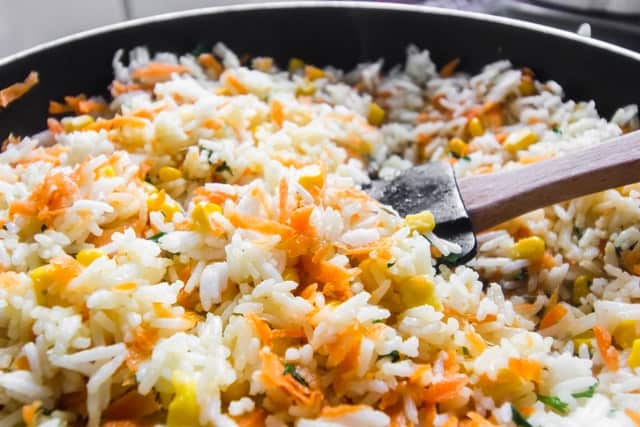
In addition to raw foods of animal origin, dogs eat plant products, including cereals. For quadrupeds, in addition to the content of nutritional compounds in the food, it is also worth paying attention to their digestibility. One of the most valuable and healthy cereals in the diet of animals is precisely rice. Is rice healthy for your dog? Yes, for several important reasons, such as:
- dogs are capable of digesting rice, making this product easily digestible and safe for them;
- rice is a source of many micronutrients and vitamins, such as iron, zinc, magnesium, copper, calcium, B vitamins, and phosphorus;
- the fibre in rice has a beneficial effect on intestinal peristalsis;
- due to its easy digestibility, rice can usually also be taken by dogs with sensitive digestive systems and puppies.
What kind of rice is best for dogs?
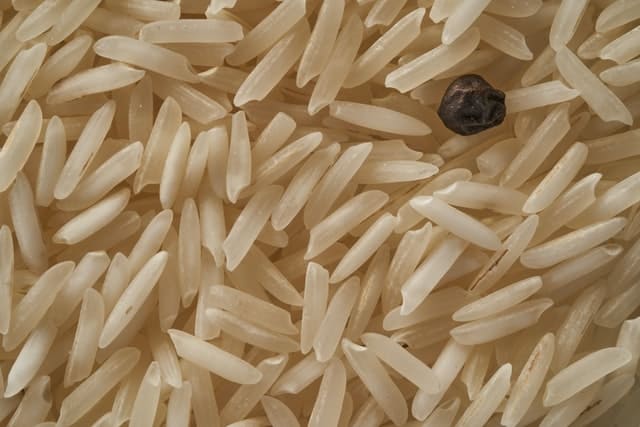
Rice for dogs is a good element, supplementing the diet, but it should not be the basis of the meal. Dogs can eat rice, but for their health, it is advisable to choose balanced foods that contain good quality and adequately processed rice. Then such a supplement is a source of vitamins and micronutrients for the dog.
What kind of rice for a dog will be suitable? There are foods available with white rice or brown rice, among others. Both types of rice have their advantages, but the choice should be guided by the dog's health. Brown rice is less processed than white rice, so it contains more active compounds. It provides the dog's diet with a fair amount of fibre, vitamins, and minerals. In terms of nutritional value, brown rice is healthier for the dog but less digestible than white rice.
White rice for dogs is easily digestible, so it is suitable for pets with sensitive digestive systems and puppies.
Can every dog eat rice?
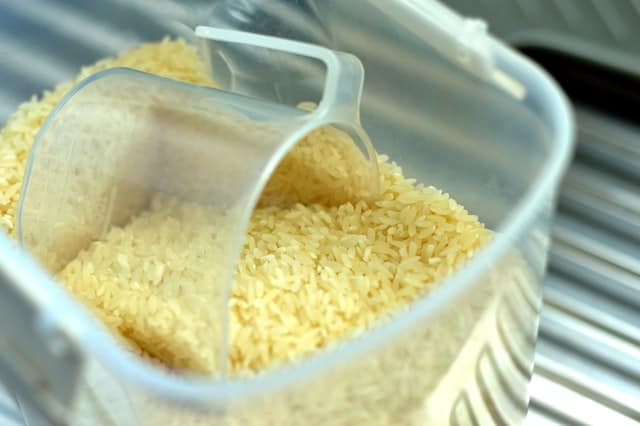
Rice is a suitable addition to dog food. Moreover, pets usually like meals varied with this ingredient. Can a puppy eat rice? Yes, rice is often an ingredient in complete and balanced dog foods for young dogs because it is easily digestible.
Rice for dogs is rarely an allergen. Nevertheless, rice allergy is possible and can manifest itself in several ways. A food allergy in a pet can cause diarrhoea, vomiting, itching, skin irritation, or localized hair loss, among other symptoms.
How often can you give your dog rice?
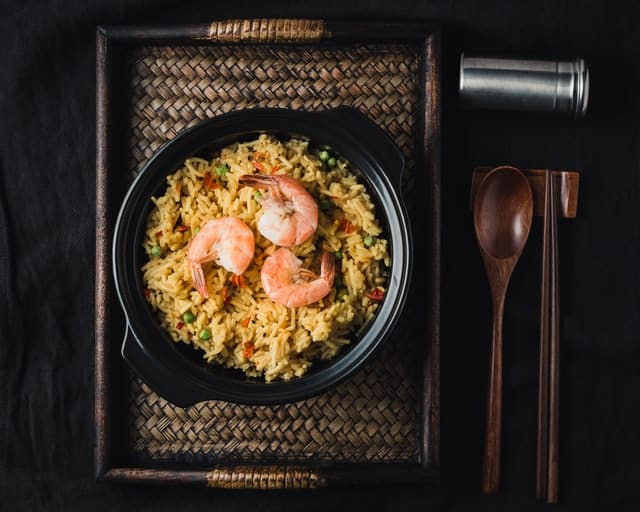
Rice for your dog is an excellent part of a complete diet, containing all the nutrients your pet needs. This grain is a common raw material in complete food, which is given to the dog daily, following the amount specified on the package.
Never give the animal raw rice, but only after prior cooking - this is the form in which rice is found in pet foods. Heat treatment significantly increases the digestibility of starch contained in rice so that it is digested up to 100%.
Balanced food is the best solution to properly take care of a dog's health. The meal should not, of course, consist only of rice. A complete dog diet includes raw materials of animal and vegetable origin in the form of vegetables, fruits, and cereals, among others.
Brown or white rice for dogs?
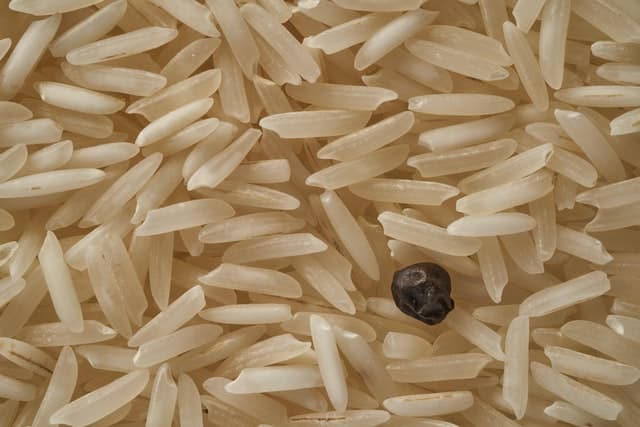
In dog nutrition, you can reach for both white and brown rice. Contraindications for feeding rice to dogs are food allergies, digestive problems aggravated by grain products, and diabetes.
Brown rice is less processed than white rice. It is also less caloric. It contains more fibre, vitamins, and protein, so it is the type most beneficial to a dog's health. In contrast, as it turns out, white rice is easier for the dog's body to digest.
This knowledge can be helpful in case of stomach upsets caused by rice consumption - it happens that the brown variety causes diarrhoea in some dogs. White rice can then save the situation - thanks to the fact that it absorbs water in the digestive tract, it contributes to eliminating excess fluids responsible for diarrhoea and speeds up overcoming the problem.
More and more grain-free dog foods are appearing on the market. Many experts on dog nutrition argue that it follows from dog nature that the only necessary ingredient in a dog's diet is meat. Yet the dog's body, along with evolution, has adapted to digest plant foods as well - a change initiated by the domestication of the dog by humans.
Rice in a dog's diet is supposed to act not only as a source of nutrients but also as a regulator of the digestive system and as a filler (similar to groats or pasta), i.e., to induce a feeling of satiety, thanks in part to its fibre content.
When choosing a rice-containing food for your dog, it is worth reading the label carefully. Reputable manufacturers often list brown rice in the composition - a good sign. On the other hand, Cheap foods usually do not specify the percentage composition or type of rice. Unfortunately, the cheapest products may contain fodder rice, which will not provide the animal with the necessary ingredients.
We can also give rise to the dog in dishes prepared independently with it in mind. This mustn't happen every day - the optimal frequency is two or three times a week. In addition, let's make sure that rice is not the main food but only a supplement to the diet. It can be served with meat and vegetables. When composing meals on your own, it is worth ensuring that low-carbohydrate vegetables are combined with rice.
Can a puppy eat rice?
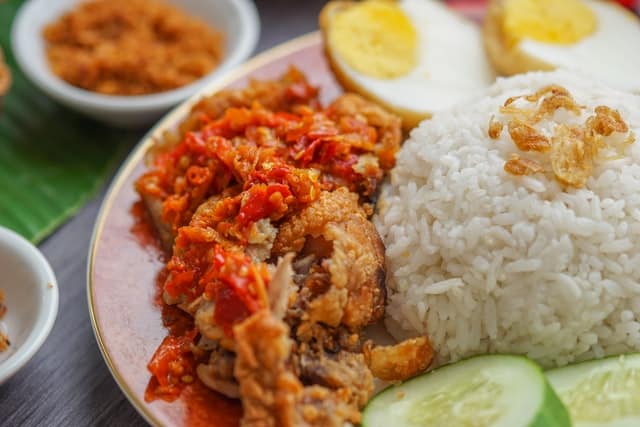
Are you going to take care of a puppy? Then you are in for quite a challenge! A small dog requires an enormous amount of attention and care. If you want him to develop correctly, you must ensure that he gets everything he needs in food. Puppies' nutritional requirements are, per their weight, higher than adult dogs. This is not surprising since their body is developing and growing. Due to this fact, balancing a puppy's diet on your own is difficult, and it is definitely safer to reach for ready-made food.
However, if you are keen to have your doggie eat meals that you prepare, consider consulting an animal nutritionist. Puppy food must meet several specific requirements. It should be high in calories and concentrated at the same time since the small stomach of a young dog cannot accommodate large portions.
It is also important to have a high protein content needed for developing muscles and fat there must be more of it than in food for adult dogs. The digestive system of puppies is not yet fully developed and thus can be much more sensitive. The food must therefore be easily digestible. Rice for a puppy works very well, but choose the white one!

